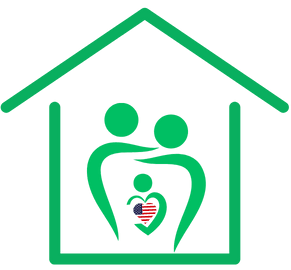Have you ever wondered about the advantages for disabled adults who choose to live with their parents? This article is packed with insights that can help ease your mind and offer practical solutions.
By diving into it, you’ll learn about the emotional, financial, and logistical benefits that come with such living arrangements. We’ll cover everything from improving quality of life to accessing better support networks. So, if you’re looking for guidance or reassurance, you’re in the right place. Let’s get to it!
Benefits For Disabled Adults Living With Parents
Helping the less fortunate and differently-abled has always been a driving force for the government. Numerous grants and schemes introduced by the federal government allow disabled adult children. In addition, various benefits for disabled adults living with parents have been provided by the government, which has helped numerous differently-abled children.

1. SSI (Supplemental Security Income)
SSI is an excellent option for people looking for benefits for disabled adults living with parents. SSI, or Supplemental Security Income, is an income-based program that provides disabled adult child benefits.
The program is specially curated for low-income citizens who support a disabled adult child or the application is disabled with low income.
To be eligible for the benefits for disabled adults living with parents this program provides, the applicants must fulfill the eligibility criteria set by the Social Security Administration or the SSA.
The basic standard that every applicant is compulsorily required to meet is that they must be unable to participate in substantially gainful activity. Other requirements that are supposed to be fulfilled are as follows:
Eligibility Criteria:
- The applicant should have assets amounting to $2,000 or less if they are single if they have a partner; then, the support cost should not exceed $3,0000. The SSA is bound to count any significant asset, like stocks, land, bonds, etc., as an essential asset when it comes to the eligibility of the applicant in a situation where the resources provided by the program are scarce.
- Not all the income is countable; thus, the SSA does not count the part of your income so that you stay motivated to work if you are eligible.
- The SSA will count any “in-kind” resource towards the income limit. So, if you are a differently-abled child who receives free shelter, food, or gifts from friends, or close relatives, those things would be counted towards the income limit.
If you fulfill all these eligibility criteria, you can apply to the SSI online and offline methods. First, you can check out their official website to obtain the application form.
This form is to be submitted along with a few necessary documents. The list of the documents to be submitted is also provided on the website. To apply offline, you can call them and spread over a phone call or visit them in person by making an appointment.
2. CDPAP
CDPAP is a disabled adult child benefits program provided by New York State Medicaid. This program offers financial assistance to disabled adult children. It is a beneficiary program for people with disabilities who require help with activities in daily life.
If an adult child has a disability and wishes to hire a caregiver, the caregiver is funded through CDPAP. NY Medicaid further backs CDPAP. Thus, if you or any of your family member who is a disabled adult child, then they can get benefits for disabled adults living with parents provided by the federal government through programs like CDPAP.
The caregiver paid by CDPAP to benefit the disabled adult child can help the applicants with activities like bathing, grooming, housework, commutation, and numerous other daily living tasks that the care recipient might require assistance with.
Under this child benefits program, a disabled adult child can also be provided benefits. This program allows children aged 21 years or older to select their parents as paid caregivers.
To be eligible for the disabled adult child benefits provided under this program, the applicant should have Medicaid. In addition, the disabled adult child for whom this program helps should require assistance with daily life functions like bathing, grooming, having meals, completing homework and assignments, etc.
Must Read: Free Internet Service for Disabled
The applicant must have a stable medical condition or disability to avail of the benefits for disabled adults living with parents provided under this program. In addition, they should be able to direct care or have a designated representative handle the care provided.
How To Get Social Security For The Disabled Child Over 18?
SSD Insurance is a disabled adult child benefits program funded by the federal government. The merits for adults living with parents provided under the (SSD) Social Security For the Disabled Child Over 18 programs are for those disabled adults who used to work before but cannot work anymore due to their disability.

The benefits provided under the social security for the disabled child over 18 programs are funded by the social security tax that all citizens pay to the system. So, suppose you or any family member cannot work anymore due to their disability. In that case, they are directly eligible for the benefits for disabled adults living with parents provided by the program.
Even if you are a disabled adult child who has never worked in your entire life, you will be deemed eligible to apply for the social security for the disabled child over 18 programs. In such a case, the eligibility of the applicant would depend on the income of the parents or guardians. The assistance provided by SSDI is the Disabled Adult Children or the Childhood Disability Benefits.
CDB is a monthly payment to the disabled adult child’s account, depending on their parent’s social security earnings record. Therefore, to be eligible for the social security for the disabled child over 18 programs, the applicant should have applied for CDB and should meet the definition of disabled provided under the SSDI guidelines.
Must Read: Grants For Disabled Females
They should be above the age of 18 years and should have a disability that began before the age of 22 years. In addition, the parent of the disabled adult child must be eligible for social security or retirement insurance.
If you and your guardian or parent are deemed suitable to avail of social security benefits for the disabled child over 18 programs, then you would be informed by the officials and asked to proceed with the fund’s collection process.
What are Disabled Adult Child Benefits?
A disabled adult child is a person who belongs to the age group of 18-24 and is living with a disability. Various benefits have been introduced for people of this category to facilitate them with their daily life functions.

However, apart from the disabled adult benefits mentioned above, there are a few more advantages that can prove to be helpful for people with disabilities to live their lives smoothly.
First of all, the disabled adult child benefits that are the most useful are the housing merits. You can get them through if you are a disabled adult child. In addition, section 8 vouchers and other government-funded programs are also applicable to those adults with disability.
Other disabled adult child merits low-income families also makes sense. For citizens whose efficiency is hampered by their disabilities, programs have been launched that help people with disabilities financially. Apart from the SSI, CDPAP, and social security for children, many other programs benefit disabled adults living with their Parents.
Childhood Disability Benefits Program
In other words, this is the same disabled adult child benefits program in the united states. Under this program covered by social security, children who are disabled before turning 22 can get the following financial assistance.
- The adult child must be clinically proven disabled by professional doctors and have reported the same disability before turning 22.
- This adult child must be unmarried to avail of the amount of the benefits under this program.
- The adult child must be financially dependent on his or her parents.
- Both parents or one must be getting social security disability or retirement benefits, and the children’s parent (both or one) must die.
- Parents living with children must have worked enough to receive the benefits under the social security income.
The parent’s child can receive the benefits up to 50% of the parent’s primary insurance amount. And 75% benefits in case of the death of the parent or parents.
Your local social security administration controls the application procedure to avail of the Disabled Adult Child (DAC) Benefits. You can call directly to your contact there through their site; however, remember that the social security program keeps changing its policy and may get updated in the future.
SSI living with Parents
Receiving Supplemental Security Income (SSI) while living with your parents is challenging but possible. Although while being under SSI living with parents might have multiple factors to be considered as follows.

You must notice that your living situation with your parents influences your SSI benefits. You shall check the latest updated information regarding SSI Living with parents on the Social Security Administration (SSA) site.
Generally, SSI benefits belong to the following three classes of low-income people who get help in the form of financial assistance.
- People aged 65 or Over
- Blind People
- Disabled People
While determining your SSI eligibility and calculating your total SSI benefit amount, the SSA must consider your current regular income and income resources; based on two different parameters.
- If the child under 18 is living with the Parents
- They call this “Deeming,” as the SSA assumes that the children share some SSI benefits with parents, which affects the total SSI benefit amount the child may receive under any qualified eligibility class of SSI.
- If the child over 18 is living with the Parents
- SSA considers this as “in-kind support and maintenance.” Any food and shelter the parents provide the child might be called “In-kind support and Maintenance.” This might affect the SSI benefit amount the children receive.
If the parents are living with their child, then SSA considers the income and resources must be shared between the family, and hence, your SSI benefits amount might get affected due to such factors.
Under the following circumstances, you must report the changes or situational modifications to your financial condition while receiving the SSI Benefits.
- If you are moving away from your parents, you must report to SSA and validate your separate income and resources.
- Any changes are happening to your income and resources, excluding your parents.
- Any changes happen to your parent’s income and resources, excluding you.
Suppose you’re a disabled person and do not want to affect your Benefit amount under SSI living with parents due to your income and resources. In that case, you can opt for the Plan for achieving self-support (PASS), which helps you keep aside your income and resources while getting the total SSI benefit amounts.
Conclusion
Living life with a disability can be stressful at times. To soothe such people in their times of crisis, programs providing financial assistance for disabled adults living with parents have been launched. In addition, the social security for Children with disability over 18 programs also proved to help significantly. You can get more information regarding the disabled adult child benefits from the official site of the federal government dealing with this wing of grants and programs.
Frequently Asked Questions
How can I get help with a security deposit in PA?
You can contact organizations like OHS, CSS, CDC, PIHN, and Philadelphia County Assistance Office. They are helping people to pay a security deposit and rent.
How can I get help with my rent in Virginia?
You can get instant relief by calling on the RRP Support Center at 1-833-RENT-RELIEF (1-833-736-8735) in Virginia for rental-based issues.
How can I get help Paying my rent in Baltimore County?
If you are in Baltimore country and need help paying rent, enroll in the Emergency Rental Assistance Program. If you fulfill the qualification criteria, then you will surely get help.
Who can help me pay my rent in Texas?
Make a phone call at 1-833-989-7368. A number of the organizer provides the Texas Rent Relief Program.

